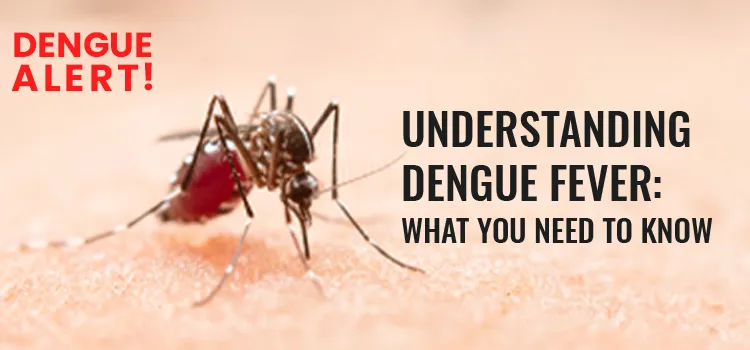Dengue Fever
July 29, 2024
Dengue fever (pronounced DEN-gee) is a viral illness transmitted primarily by mosquitoes in tropical and subtropical regions around the world. Here's what you need to know about this potentially serious disease.
What Causes Dengue Fever?
Dengue fever is caused by the dengue virus, which is spread to humans through the bites of infected Aedes mosquitoes. These mosquitoes are most active during the day and are commonly found in areas with tropical or subtropical climates.
Recognizing the Symptoms
Dengue fever often mimics other illnesses like the flu or malaria, and its symptoms typically last between three to seven days. Common symptoms include:
- Joint and muscle pain
- Nausea and vomiting
- High fever
- Severe headaches
- Pain behind the eyes
- Swollen glands
- A rash appearing three to four days after the fever starts
In a small number of cases, dengue can escalate to severe dengue (also known as dengue hemorrhagic fever), which occurs as the fever starts to subside. Symptoms of severe dengue include:
- Persistent vomiting
- Rapid breathing
- Blood in vomit
- Bleeding gums
How Is Dengue Fever Diagnosed?
Diagnosis of dengue fever involves a specific blood test that detects either the virus itself or the antibodies produced in response to it.
Treatment Options
Treatment for dengue fever primarily focuses on supportive care. This includes:
- Pain relievers
- Bed rest
- Adequate fluids
For severe cases, immediate medical attention from healthcare professionals experienced in treating dengue is crucial, as it significantly reduces the risk of complications or death. Treatment plans may vary based on factors such as age, severity of the illness, and overall health.
Complications to Watch For
Without prompt treatment, severe dengue can be life-threatening. Complications may include:
- Severe bleeding
- Breathing difficulties
- Organ damage
Preventing Dengue Fever
Currently, there is no widely available or FDA-approved vaccine for dengue fever. Prevention focuses on minimizing mosquito bites through:
- Applying insect repellent to exposed skin and clothing
- Staying in well-screened or air-conditioned environments
- Wearing clothing that covers as much skin as possible
- Using mosquito nets when sleeping during the day, preferably treated with insect repellent
- Employing window screens, mosquito coils, and vaporizers
By taking these precautions, you can significantly reduce your risk of contracting dengue fever and protect yourself from its potentially serious effects.


